Music Industry Crash Course
Posted: 22nd October 2019
On October 14th, as part of our Thanet Emerging Artists Programme, we hosted a panel event at the Turner Contemporary in Margate.
We invited a panel of music industry experts to join our panel, who between them covered everything from getting gigs to copyright.
Our panelists were:
Beth Clayton
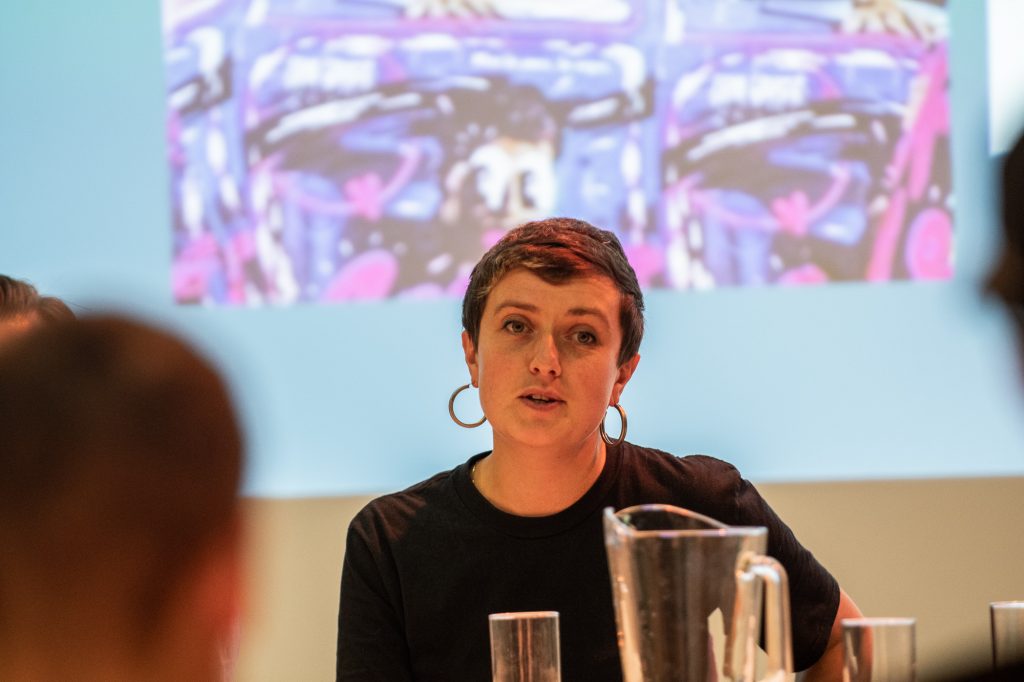
Michael McClatchey
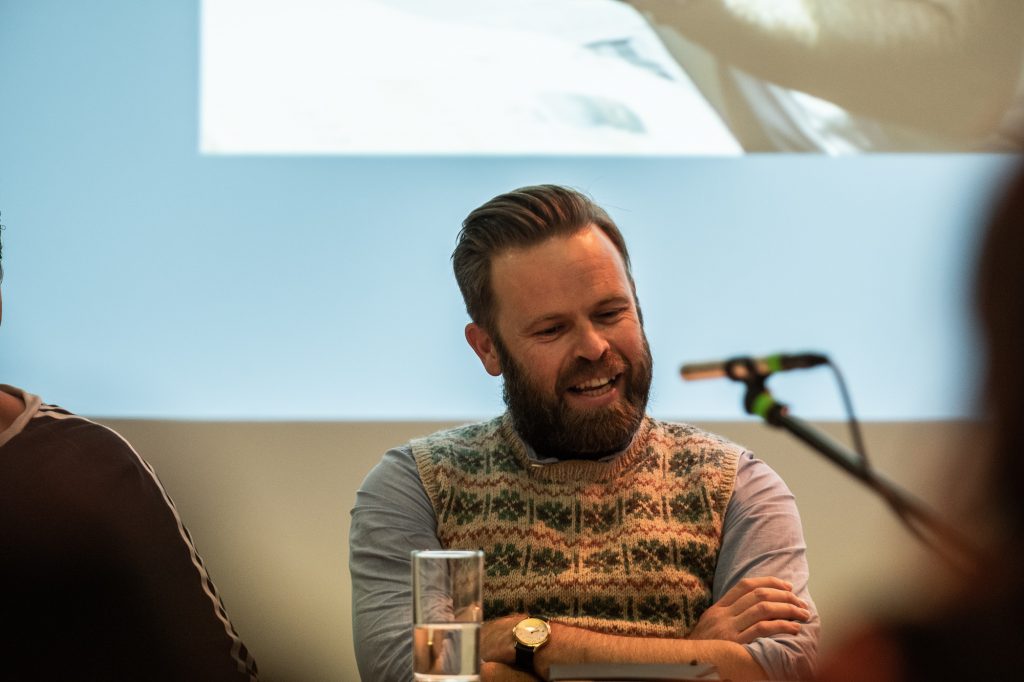
Harriet Jordan-Wrench
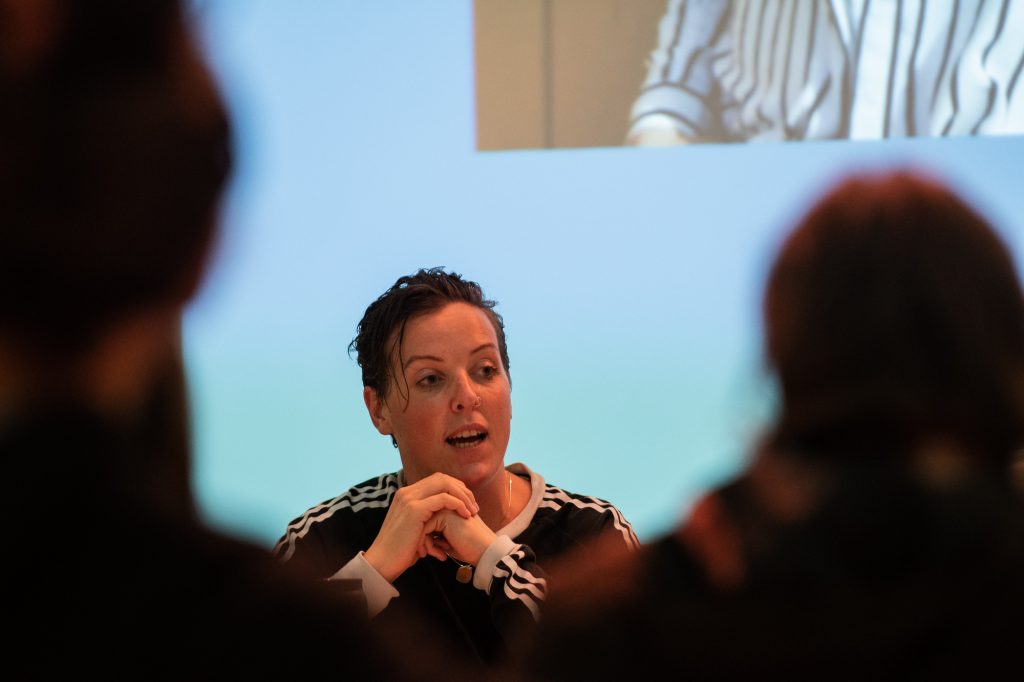
Mike McEvoy
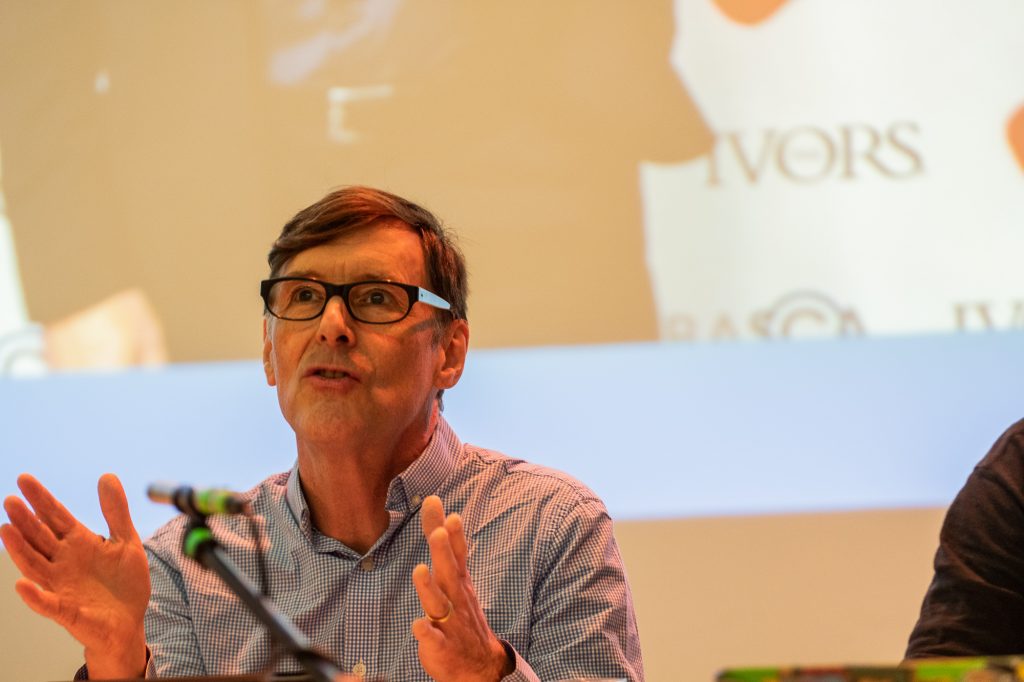
Matt Smyth
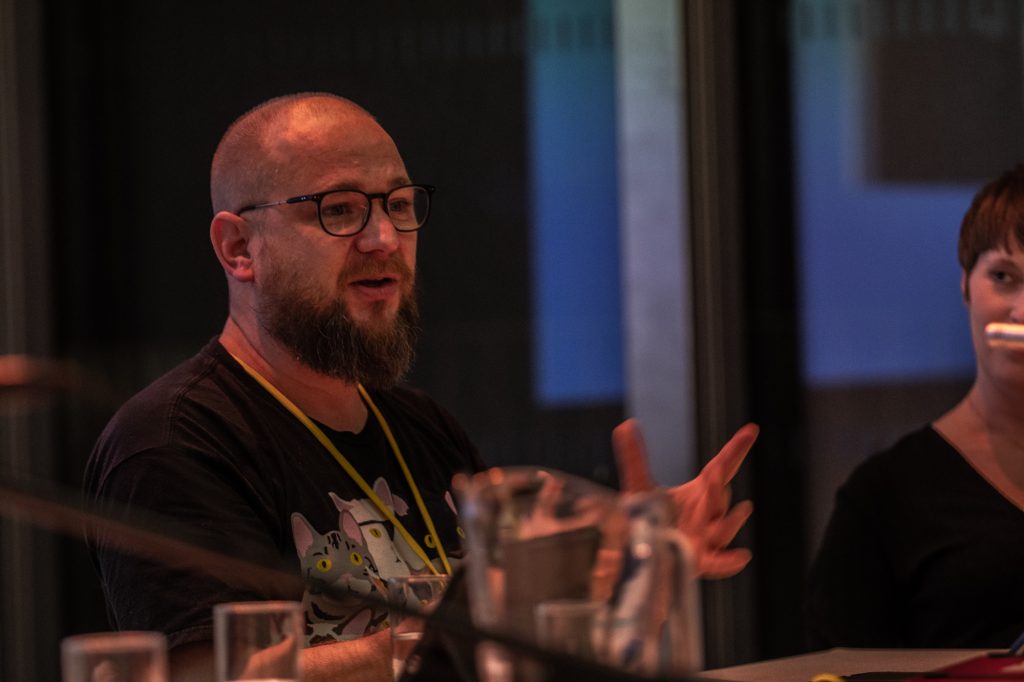
The Advice
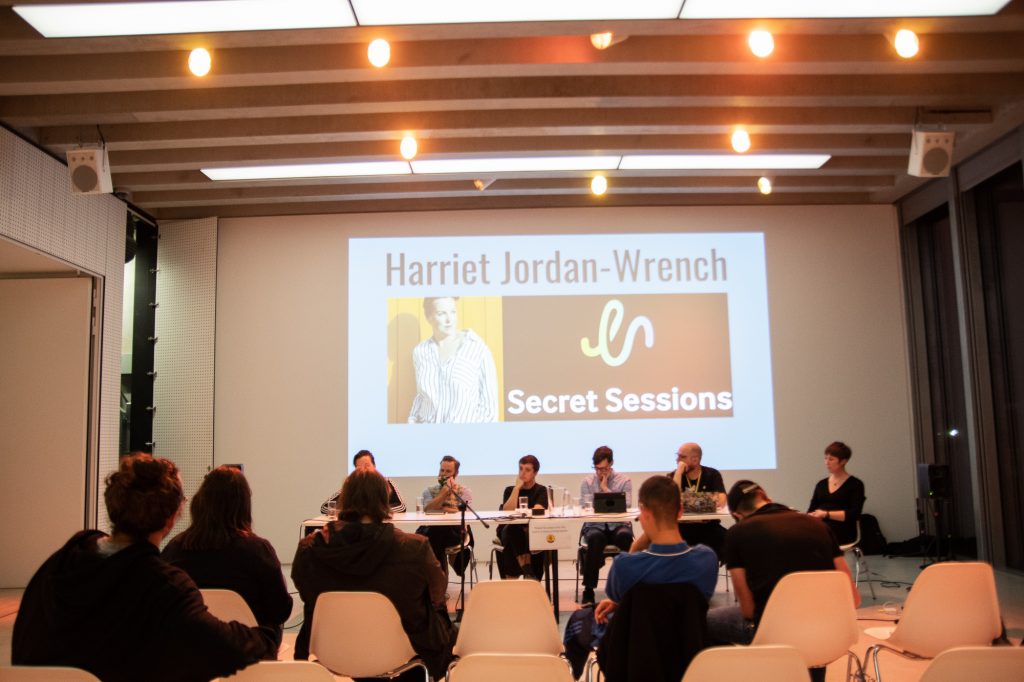
Harriet kicked off the night with some advice about Getting Gigs.
“If you ever want anybody to listen to you, to trust you, to give you money, or put you on at their event, just be good at what you do”
“Work on your craft ….. That always has to come from passion. Why do you want to be a musician? Think about why you want to be in the industry. Every time the going gets tough, remind yourself why you’re doing this”
“Research the gig or the venue you’re applying to. If you want to apply to play a grime show and you’re a country singer, its probably not going to work. You need to really know the people and the places you’re contacting. When describing yourself, cut copy and paste can be risky – You’re better of with just two or three personal lines about yourself rather than pages of artist influences. What’s even better, is going and meeting people in person.”
“Network in real life. It’s so easy to be behind your computer, but we’re human beings.”
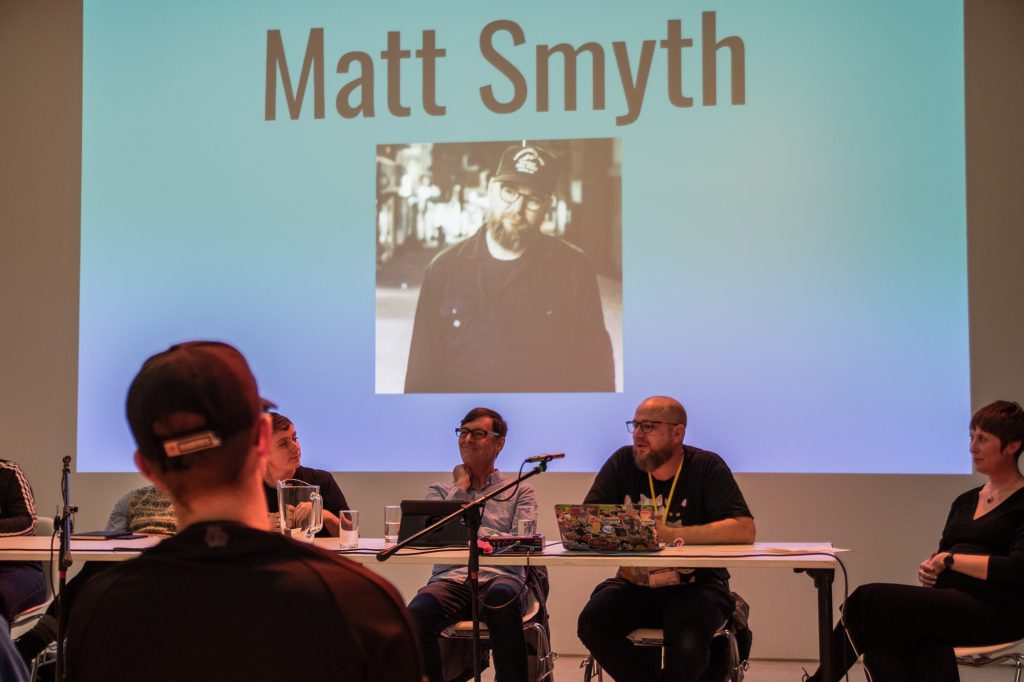
Next up was Matt, who shared some advice from his time in the industry.
“It’s such a crazy industry to be involved in, and to try and maintain a career in. It’s not the type of job where you apply for it, you don’t send in your CV, or send in a letter. It’s a lot more about getting to know people, networking, and a lot of jobs will lead to other jobs.”
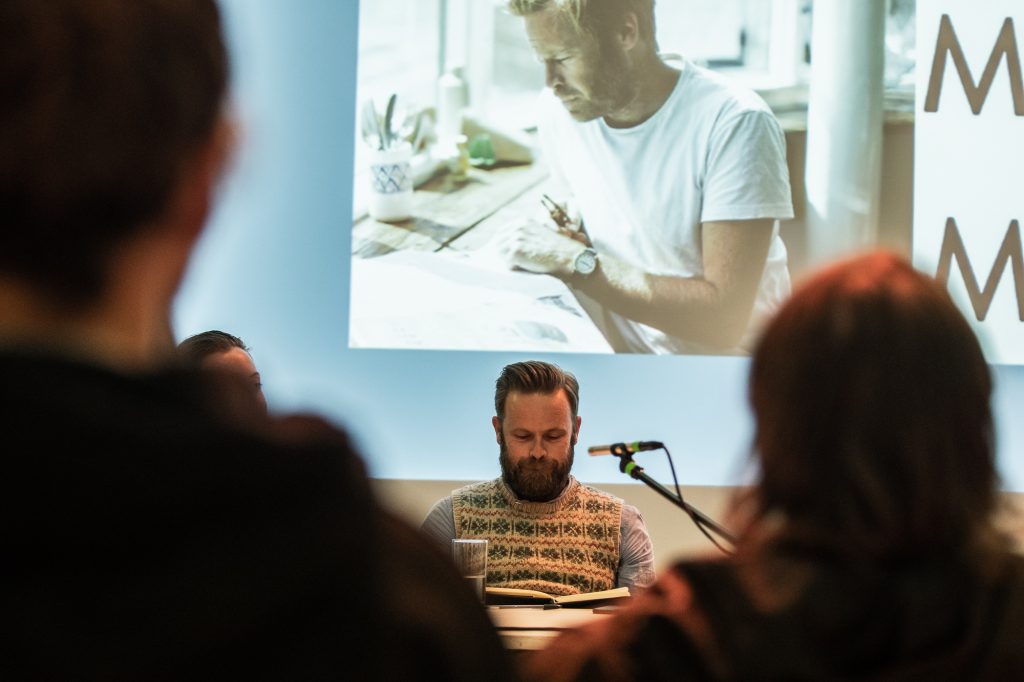
As Michael began to talk about Record Labels, the sound of Thunder boomed outside.
“That thunder is quite appropriate, because as we all know, Record Labels are the bad guys. We hang around backstage handing out business cards and trying to break the band up. That’s the cliche – and it’s an enduring one, probably because there’s an element of truth. Record labels were set up to make money from a musicians art, and through the 50’s, 60’s, and 70’s labels did that ruthlessly. It wasn’t until bands like the Beatles came along and started to take back control of their creative output that things started to change. Then Punk came along at the end of the 70’s and sped the whole process up, and around that time you’ve got a whole new raft of independent labels like Rough Trade, Beggars Banquet, and Stiff Records, and they were designed and created to be more about the music and less about the commerce.”
“At the end of the 90’s technology came along and reset everything. The Internet empowered musicians to release their own music. You can release your own music, and that’s great. But it’s like, you can sell your own house, but it’s a good idea to have someone help. Someone who will do a better job than you can yourself.
Whether you should release, or self release depends on what you want to achieve. You can record your own music at home, and release it, but the chances are you’re going to have a limited reach, and you’ll make a limited amount of money back from that. If that doesn’t matter to you that’s fine, but if you’re hoping to make a living out of it, and reach a lot of people, then record label’s are probably the way to go.”
“The smart thing to do might be to self release first, then go to a record label when you’ve established yourself. Sign a record deal that suits you, then when you’re massive, ditch the label and start self releasing again.”
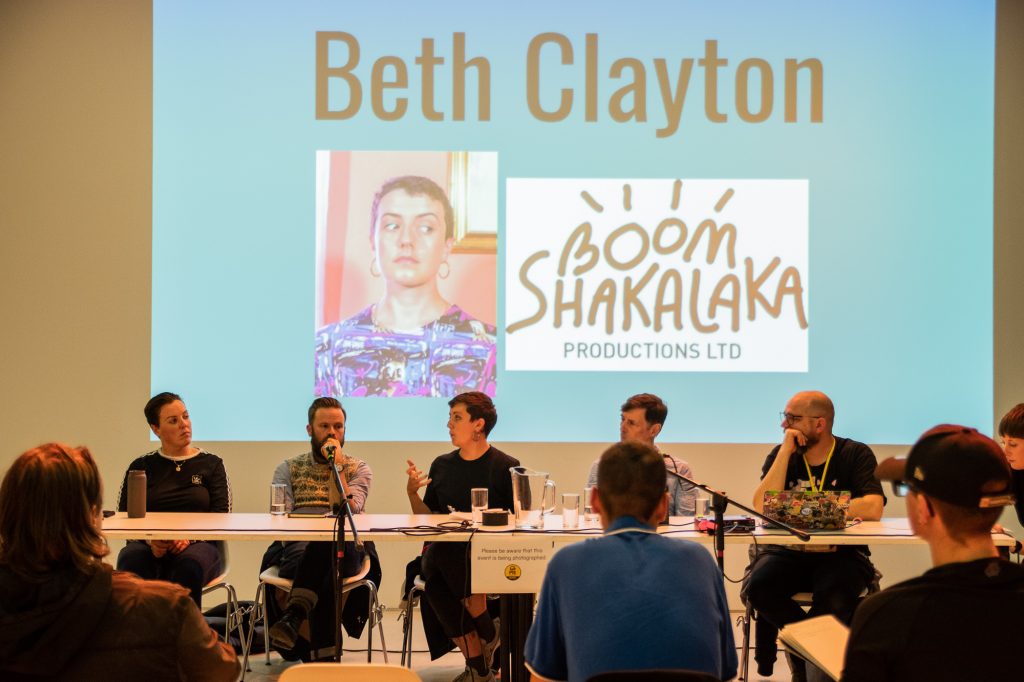
Next was Beth, with some advice about Branding and Marketing.
“I work for Nick Cave’s management team – For anyone whose not sure who that is, the Peaky Blinders theme tune is one of his songs”
“Branding is how your represent your music and yourself to the outside world – In particular, how you show people what makes you and your music distinctive.
Things that are important – Having an image, or way you like present yourself, a good social media presence, a good strategy for collecting data, a good visual approach to representing yourself and your music, and a plan.”
“When you read online about tips for marketing yourself, there is a lot of emphasis on social media, a lot of emphasis on digital presence and on numbers. They are all important when you’re presenting yourself to a label, to a promotor, or to an agent – but don’t let it distract yourself too much from your music. Stuff in real life is really important as well.”
“For anything you’re posting online, work out what it is you’re trying to achieve. Are you trying to get more followers? Trying to keep your current followers engaged? Or trying to just get as many people to listen to a song? Then work out how you’re going to measure this.
Think about who your audience is, and where they are – people use all the platforms in different ways. It’s really good to vary content across platforms. Mix it up, it will make it more interesting for you – don’t post links to an Instagram post on your other platforms, don’t cross contaminate! Create stuff for the place it’s supposed to be.”
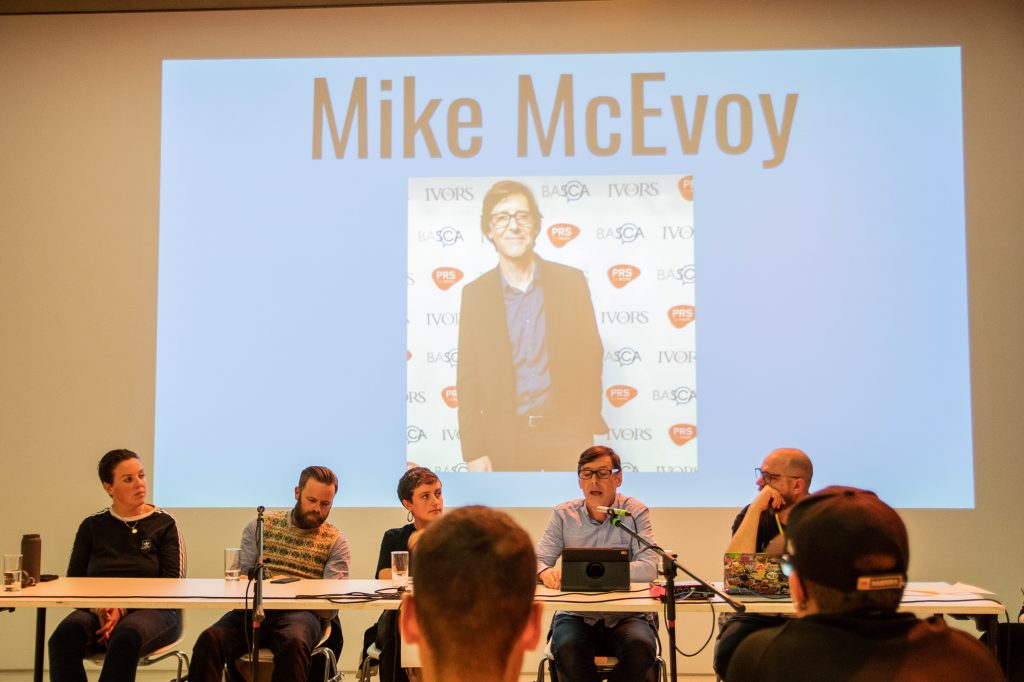
Last but definitely not least was Mike.
“What I’m gonna be talking about is this term: Copyright. Copyright is ownership – It’s about property. This property isn’t not something you can walk into, or have a key to, its an intellectual property. Something you’ve created. Anything you create, like a song, or a recording, there is a value attached to it. In the UK, if you write a song, you are seen as an author. You have rights as an author – that means it’s owned by you.
A recording is a different – often a Record Label helps pay for someone to record music. To make that money back, they often co-control the copyright for that recording with, or on behalf of, the artist. But this is separate to the copyright (or ownership) of the song”
“I think it’s really important that if you’re really serious about having a career in music, and you’re going to be a writer or someone that’s going to create recordings, that you know about copyright, and understand the value of it.”
“If you do want to find out more, go to the PRS website (Performance rights society). They collect all the royalties and distribute them to the artists. It’s a good resource if you want to know about song writers copyright”
You can read about this here:
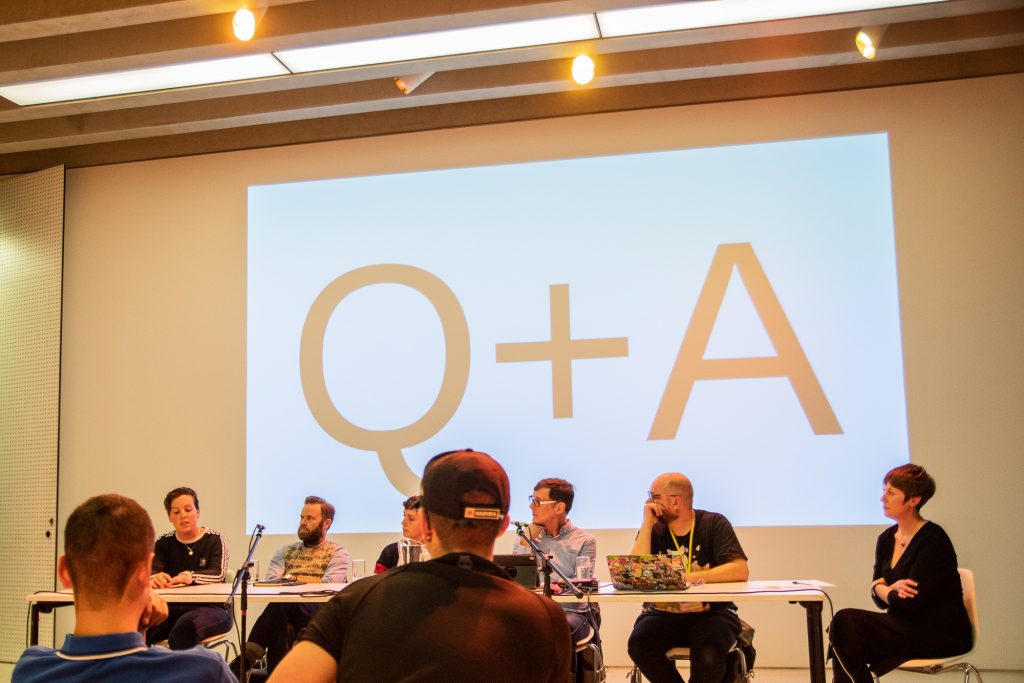
We finished our Crash Course with a Q+A that was open to the audience, as well as questions from online. Our first question was from Rhys, one our young producers.
Rhys: “What’s the most professional way to approach a venue?”
Harriet: “I would first find out who the promoters are that are putting on nights at that venue. If it’s a case of just wanting to get on stage at that venue, then approach all the people that put on gigs there. Try and meet the promoters face to face.”
We then had a question from Zoe, who was hosting the panel.
Zoe: “How important are live performances when it comes to being noticed by a record label?”
Michael McClatchey: “Being able to play live is pretty essential. It’s not the be all and end all, but it’s a very powerful promotional tool. I always prefer to work with an artist that can perform live. Look for open mic nights, or even approach venues about putting on your own show if you’re confident that you have enough mates that will come”
Rhys: “Is it still worth sending demos to record labels?”
Michael: “I definitely still think there’s a use to it. But don’t get hung up on record labels, don’t see that as the end goal. Just try and get your music out to as many people as you can. If you want to attract a label, then get a lot of people to your gigs, and a lot of people talking about you.”
Zoe: “Matt as someone who has worked on many demos, what do you think a good demo sounds like?”
Matt: “In this day and age, from my perspective, it feels like labels are looking for a product that they can put straight to market. The old model certainly was making a demo, but now with a laptop or a phone, you can make something that’s of release standard. You have to get as close to releasable quality as you can.”
Harriet: “Ultimately you have to prove that there is a fanbase for what you do. But, if you do want to show people your music, think about what is the easiest way to for someone to hear it. If that’s just a link, then get their email address and send them that. Keep it as easy as possible.”
Beth: “Ultimately I think Soundcloud is the best way to share your music. Because you don’t need to log in to see it. Open platform linking is best for sharing music. And put it at the top of the email!”
Harriet: “One thing I’ve liked when someone is trying to get a live show, is when people have sent me a highlights real of short clips from their gigs”
Michael” “One of the first things I’ll look for is a live video that someone has filmed at a gig”
Question from online: “Should artists always ask for payment for a gig?”
Matt: “If you’re just starting out, you kind of have to play for free. How else are you going to get your foot in the door? If you’re doing stuff for free, and being the person thats helpful, and committing your time, thats whats valuable to people. That’s how you get the first 50 people, or 100 people to like what you do. You have to do something to get out there. The tough thing is working out when you need to start asking for payment. But at the start, grab every performance opportunity you can. Because they can be hard to come by.”
Michael: “If you’re confident that you will bring a lot of people, then ask for a cut of the door. You need to know your own value”
Audience member: “When it comes to explicit content, are radio edits still necessary?”
Michael: “Definitely. More so for Spotify now than radio”
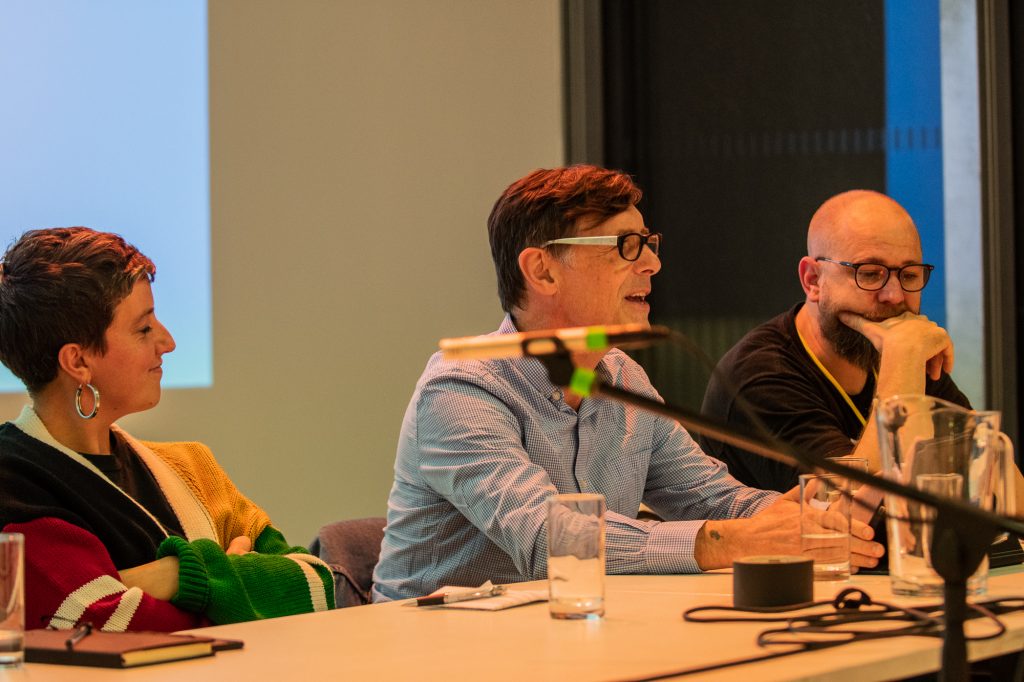
If you want to find out more, then you can watch the full live stream on our Facebook page here:
We hope that our panels expert advice has helped with some of your Music Industry queries, but keep your eyes peeled for more Pie Factory Masterclasses in the future.
